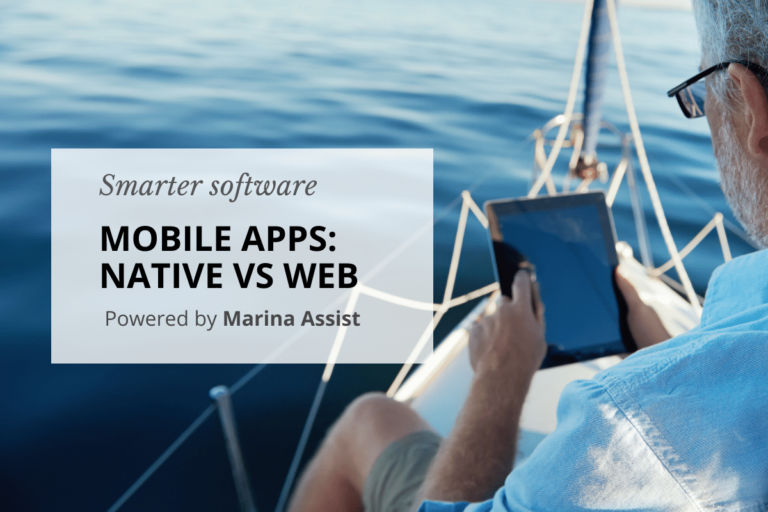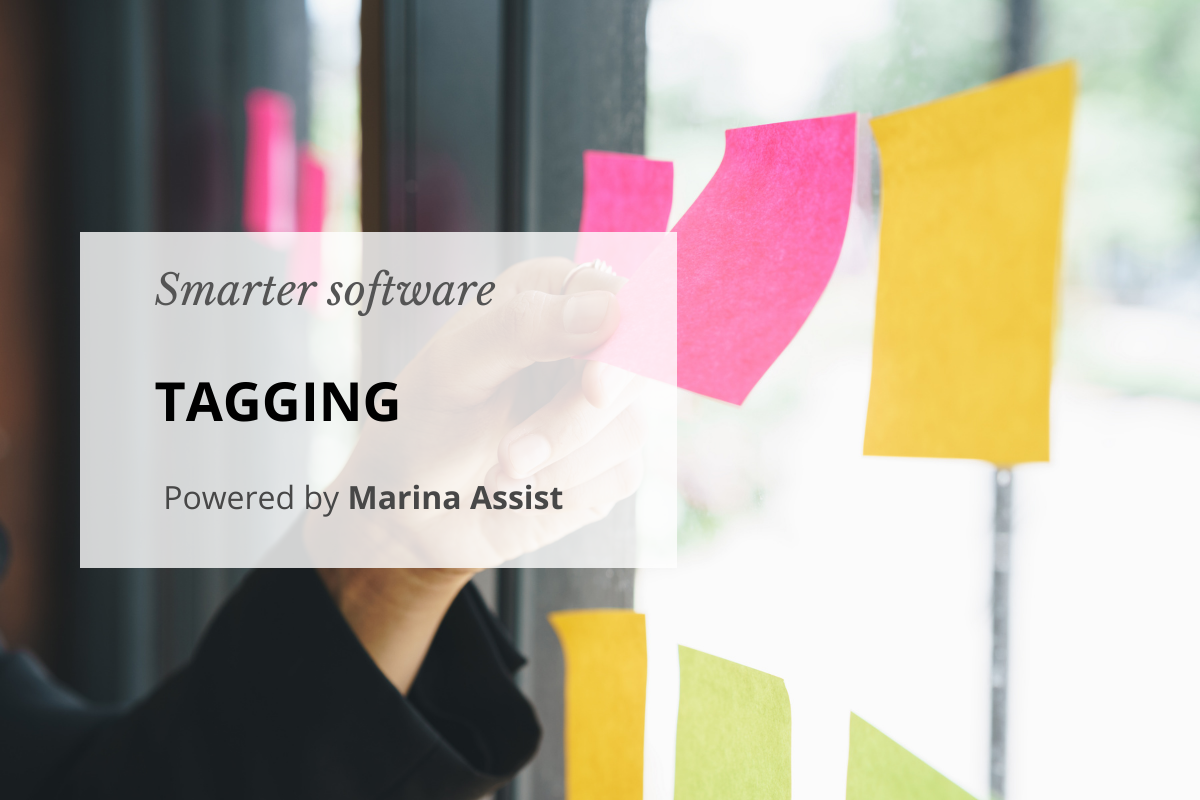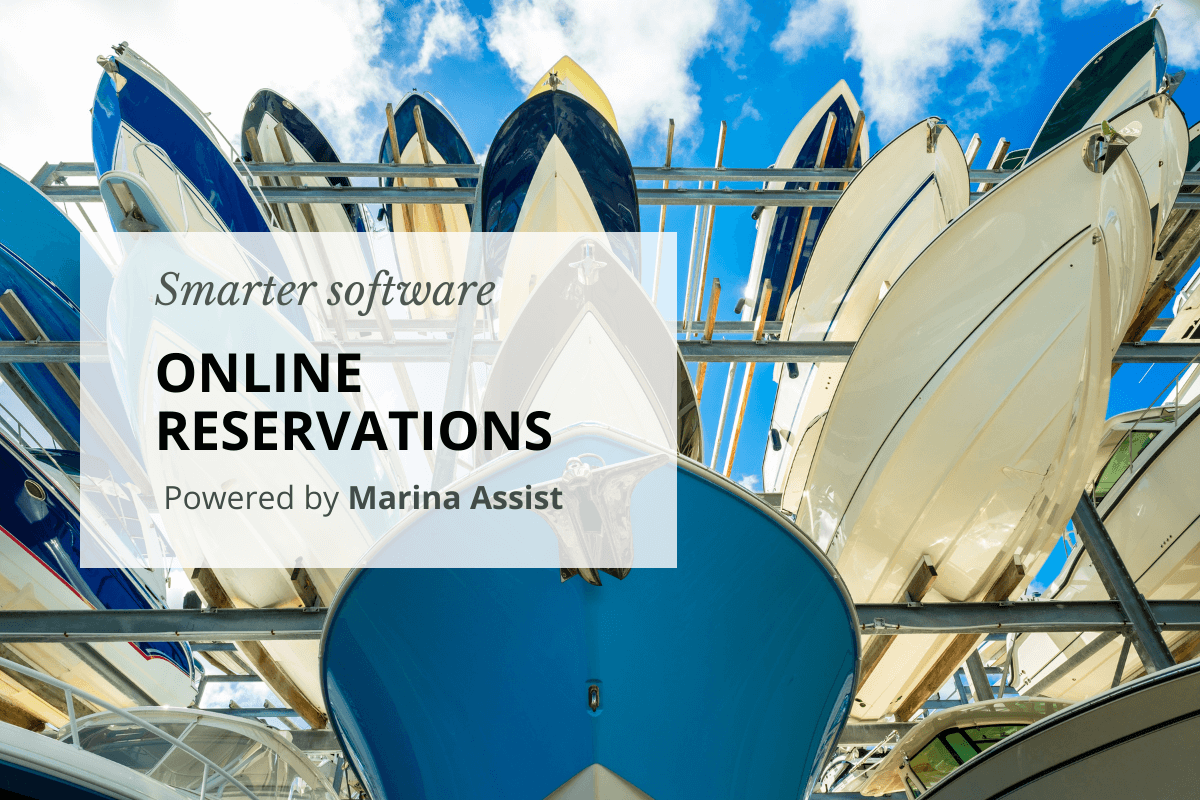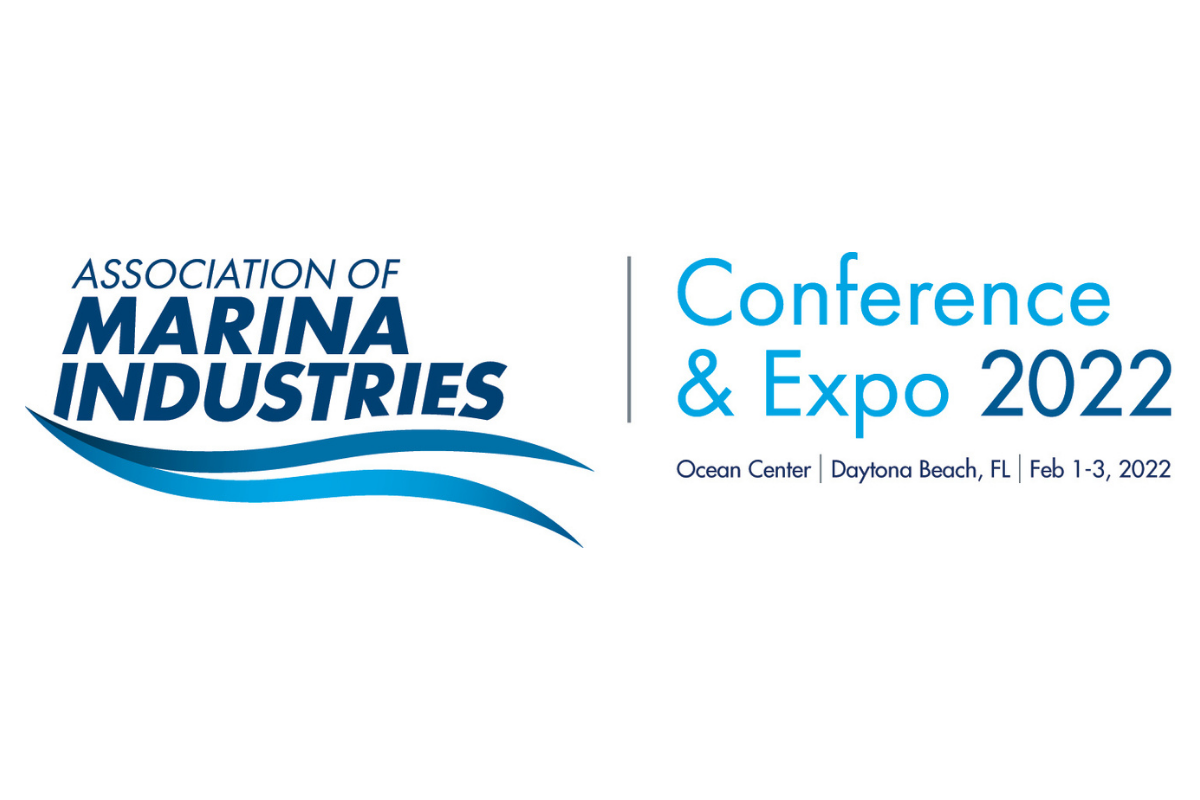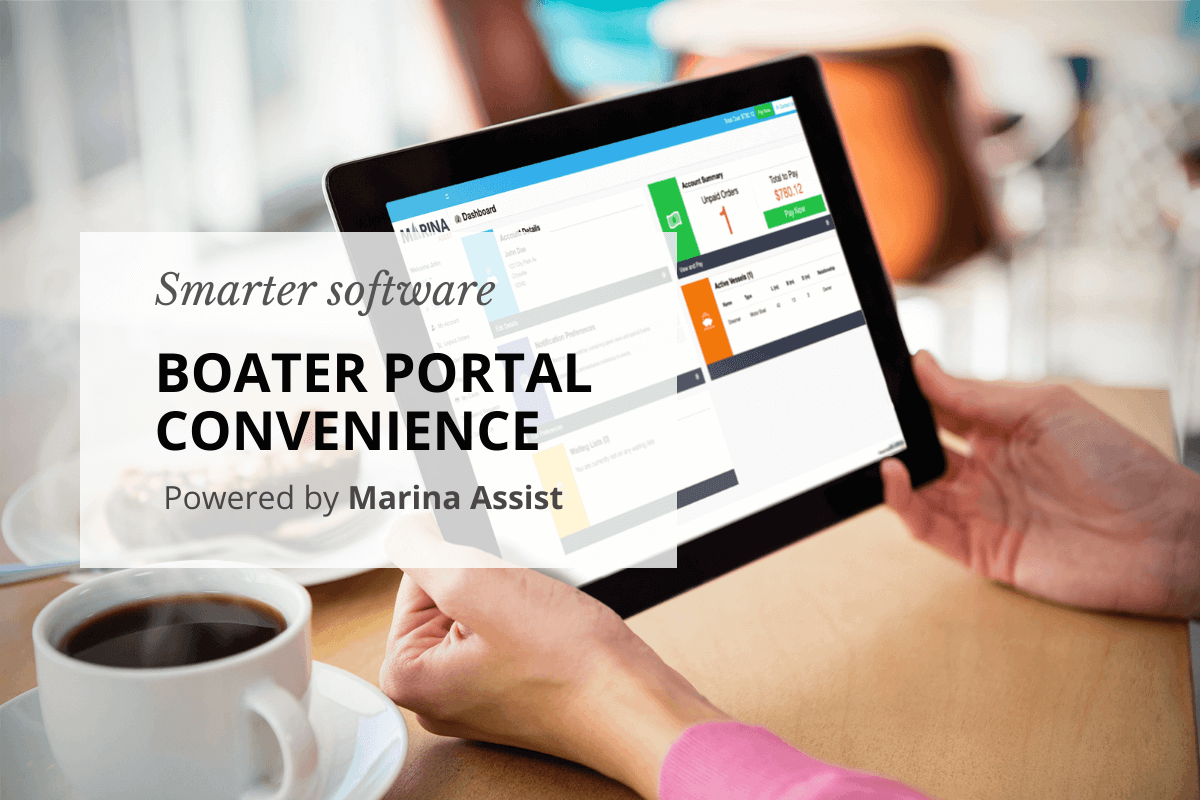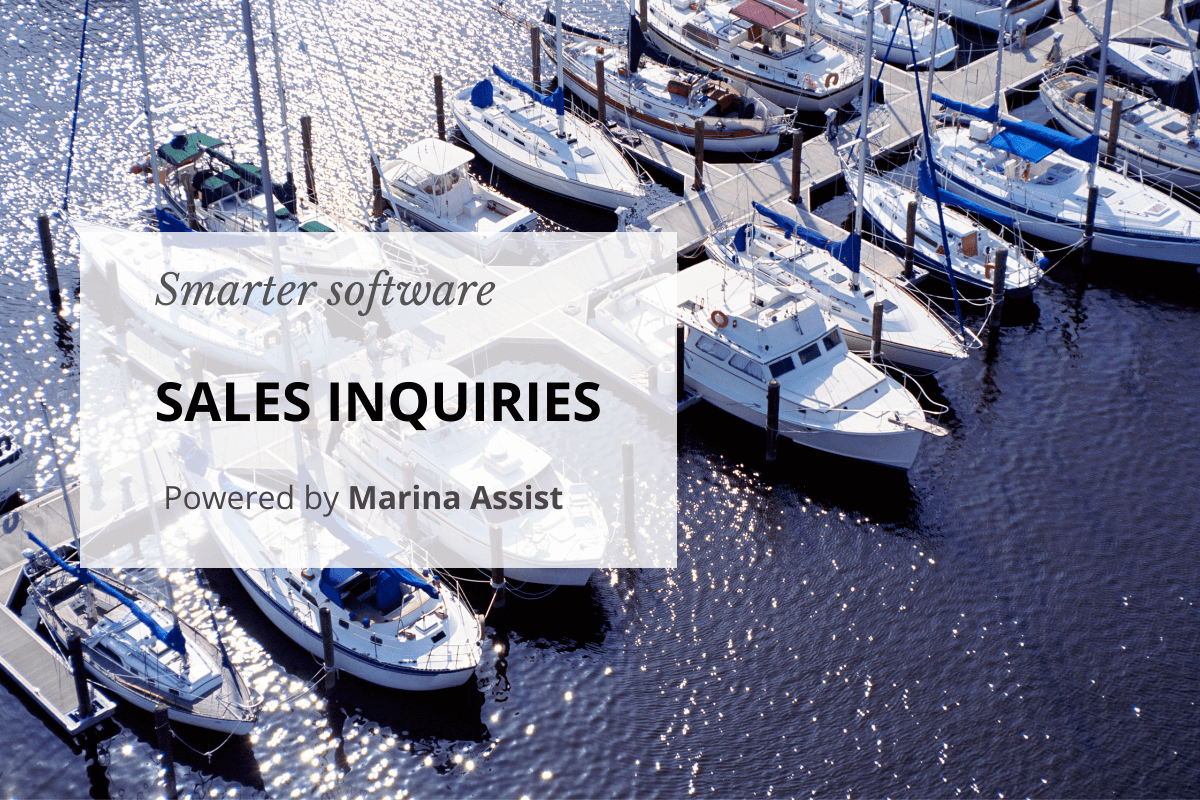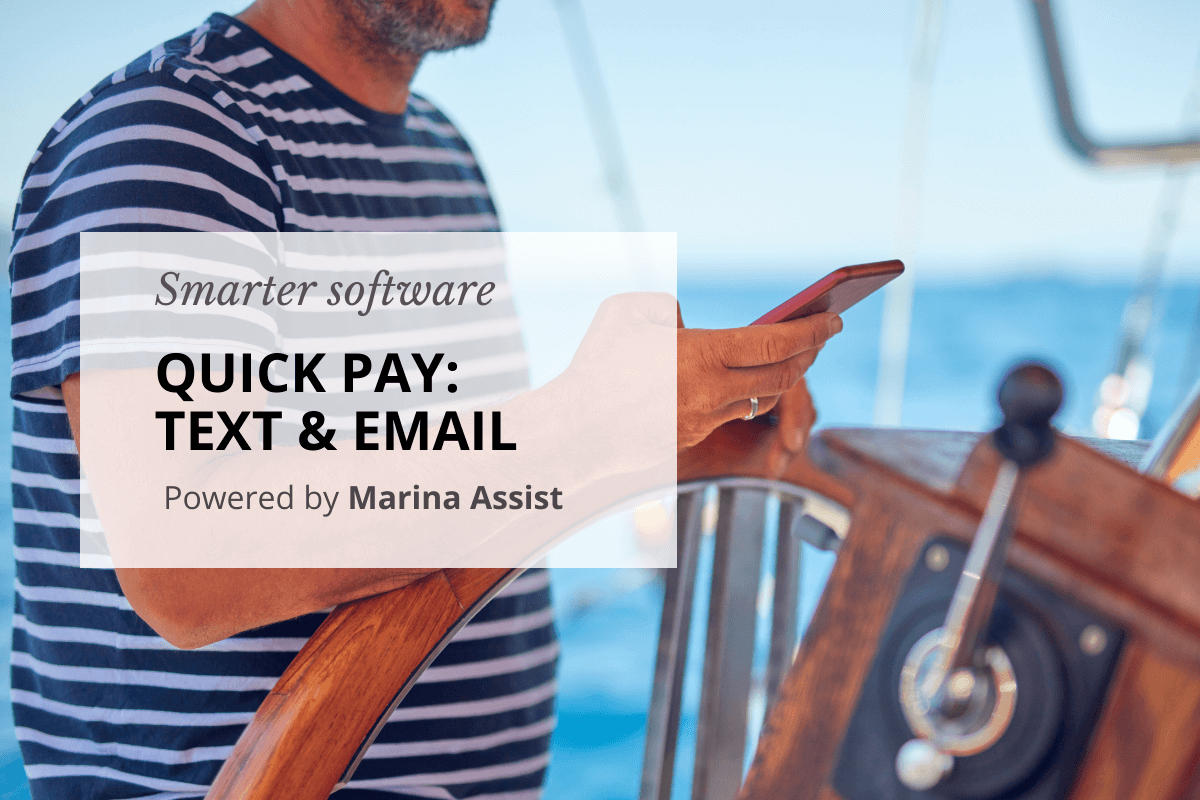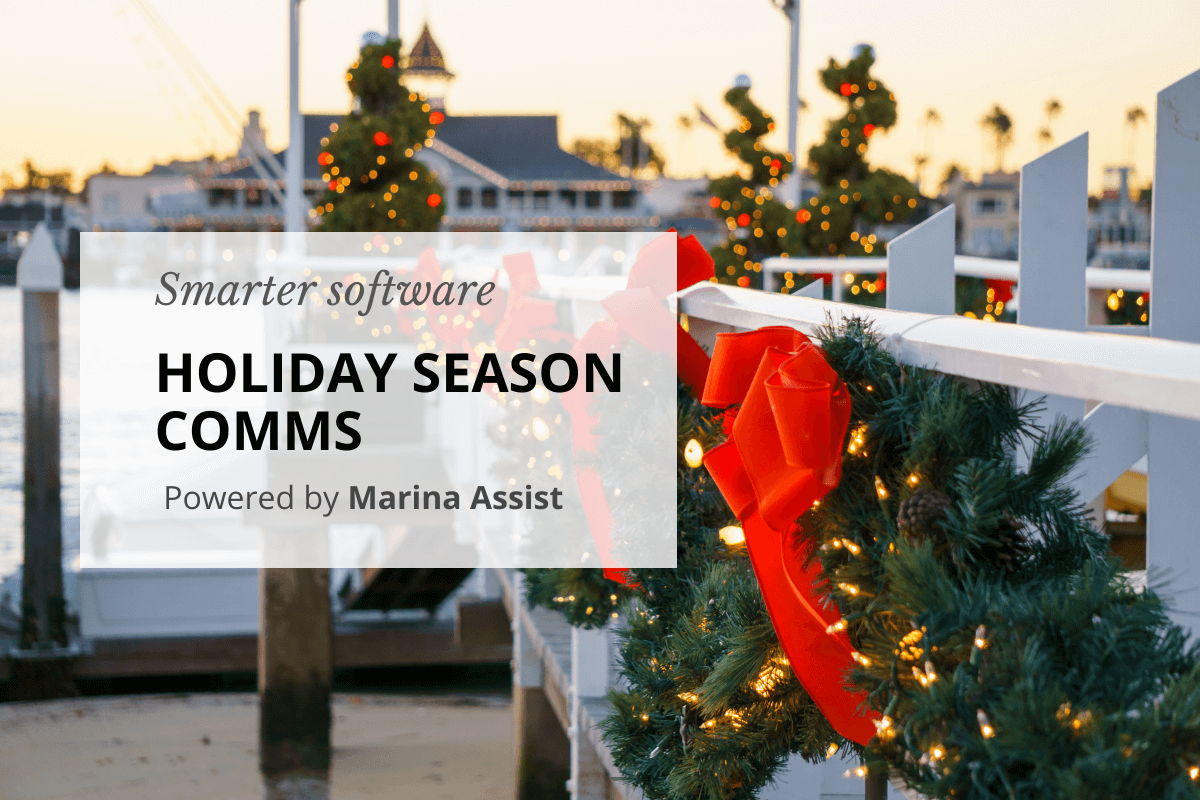What are apps, and what’s the difference between native and web?
The relationship between mobile devices, apps, and web browsing is often misunderstood. That’s not surprising – it’s a fast-changing environment. This is our plain language take on the pros and cons of apps, and what they really are.
What is an app?
App is short for application. Back in the day, we’d have called these programs – software that allows you to perform a specific task.
Most people think of apps as downloads for smartphones or tablets, but the description is also commonly used for desktop programs too, like Microsoft Word. We’re going to focus on mobile apps in this feature.
Web apps
Web apps are functional software programs that are accessed via a web browser – for example, using Microsoft 365 via Chrome. Marina Assist is a web app.
Because you’re accessing a website, there’s no need to download anything from the app store. Plus, web apps don’t take up memory space on your device or put your data at risk.
The huge benefit of web apps is that they can be accessed on any device via any browser – there are no discrete versions for Apple or Android or even PC. This means that you don’t lose features or need to download new software if you change your iPad for a Samsung tablet.
A single solution means new features can be delivered quickly and small improvements rolled out seamlessly to all users. So web app users often get a better experience and the benefit of the latest version.
Data security
Data security is a big issue for everyone – we’ve all heard the stories of data leaks caused by a lost laptop. If data is held in an app downloaded onto a mobile or tablet, then the data is at risk if that device is lost or stolen.
Marina Assist is designed so that marina and boater data is ring-fenced, and only delivered ‘as required’ from the Cloud to the device. Once the user has stopped viewing or editing the data, it is removed. Plus, sliding session expiration (effectively timeout) means that any device left lying around with the app open will require authorized login after a period.
So if a dockmaster at Marina A uses his tablet to add a note to John Doe’s account, that information is only available while John Doe’s account is open. When the dockmaster completes the task, the app removes anything about John Doe from the tablet without affecting the data stored on the cloud.
The same is true for boaters accessing the customer Portal on their phone – their outstanding invoices or payment history is only delivered from the cloud to the phone when the boater clicks the button. Nothing is stored on the phone.
Connectivity
Connectivity issues are sometimes raised against web apps, but the reality is that these happen so fast (50-200 milliseconds) that the possibility of a connection being interrupted mid-action is tiny.
Marina Assist is designed for low bandwidth environments, which means it’ll still work smoothly even if you’re on a 2G mobile connection rather than superfast WiFi.
Web app overview
- No downloads – all online
- No personal data risk
- The same functionality on every device
- Real-time updates
Native apps
Native apps are written for a specific operating system, like Android or iOS. You can’t just publish a native app, it must be approved and sold through the operating system store, like Google Play or Apple App Store.
Writing separate code is expensive and time-consuming, which is why some apps are only available on one operating system or maybe less functional than their desktop versions. Every time the creator wants to make a change, it must be approved by the app store, and then the update activated by the user. Availability and functionality may also be limited by the users’ device – if you’ve got an old phone running an old version of iOS or Android, you may not be able to access app updates or even run some apps.
We’ve all bought a phone with loads of data, then found it running slowly or unable to download a new app without deleting something else. That’s because apps are stored locally on your phone – you are downloading the software when you purchase an app.
Having the app running on your phone was an advantage a few years back because it meant the software wasn’t reliant on a connection to the internet. But this is much less of an issue with the huge investment in 4G and 5G technology, expansion of the cellular network, and availability of public or low-cost WiFi.
Native app overview
- Discrete versions for Apple, Android, and desktop
- Stored locally on your device
- Must be downloaded from an app store
Accessing web apps
When you download a native app from the app store, it automatically drops an icon onto your device. This makes it easy to access the service or software. You can add icons to your phone or tablet home page (or even your computer desktop) for web apps too.
Add a web app icon to your phone or tablet:
- Go to your web browser and navigate to the site or page, such as your website, Marina Assist database or your customer Portal.
- Click ‘share’ on the browser menu and select ‘add to home screen’. If you’re using an Apple device, you’ll need to do this from Safari, and use Chrome for Android devices.
- Now you simply tap the icon to access the software, just as you would for any other app.
This works for your customers too. Show them how to add the customer Portal link to their phone and they’ll be able to pay bills and make booking reservations at the time that suits them.
If you’re looking to get your team working effectively away from the office, Marina Assist can help.
Interested? Call us on (410) 834-0559 or email [email protected] and let’s talk about how we can help your marina team to work smarter and connect with customers.
